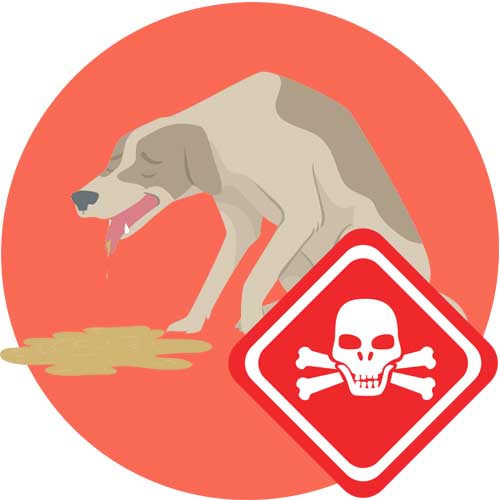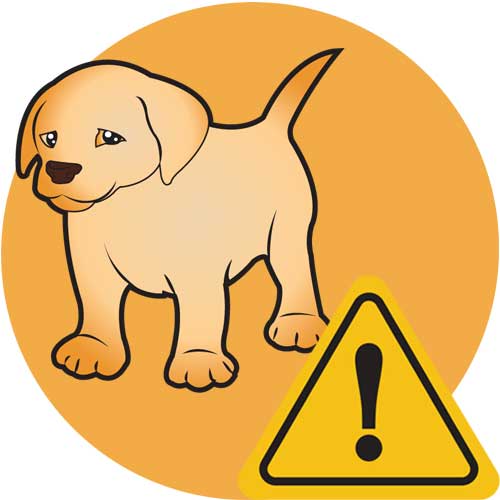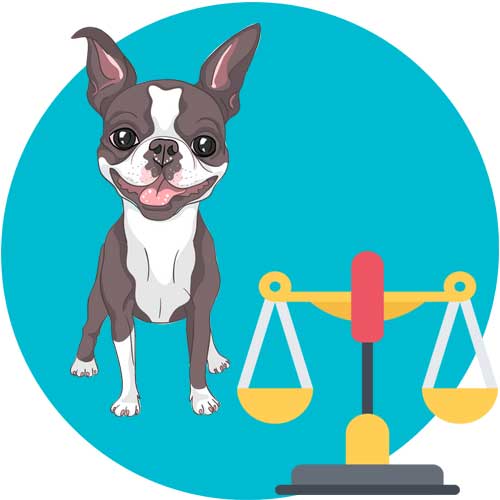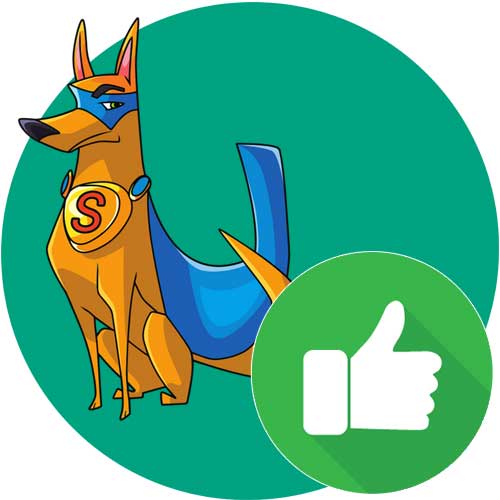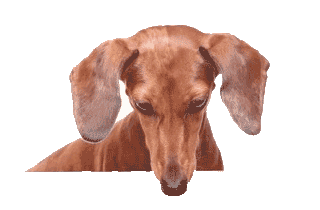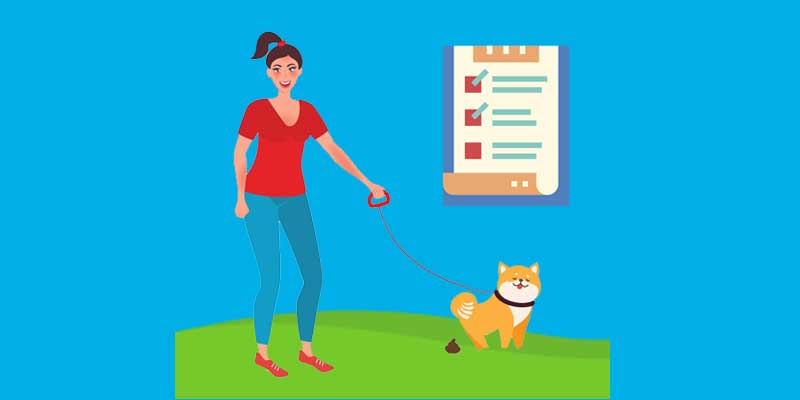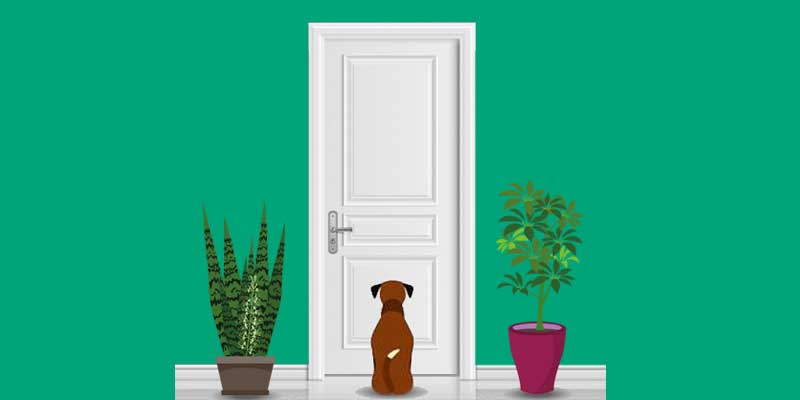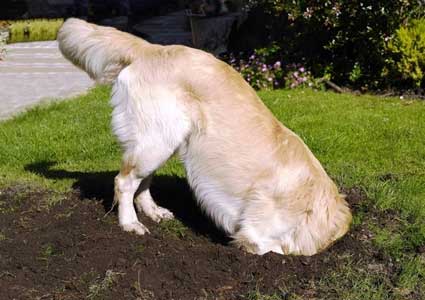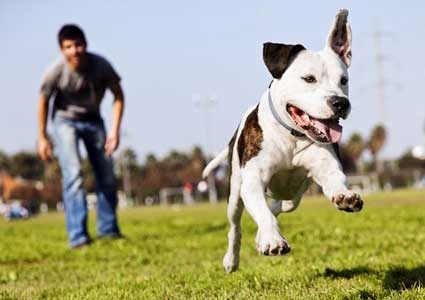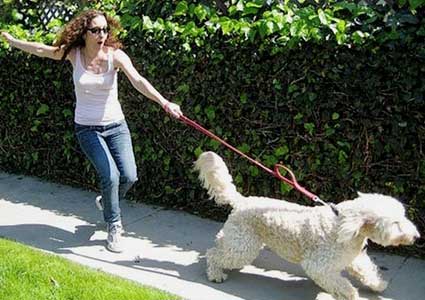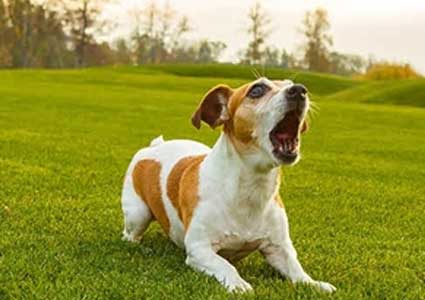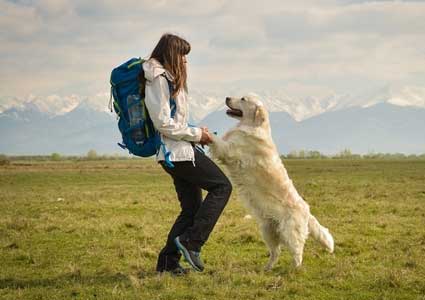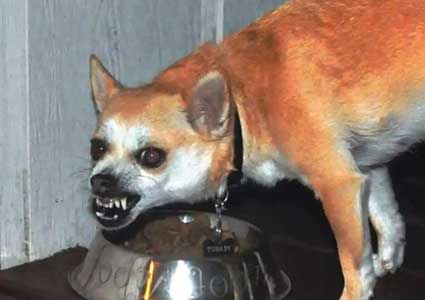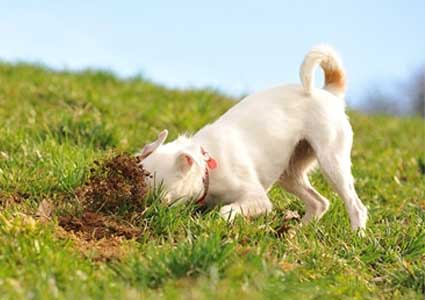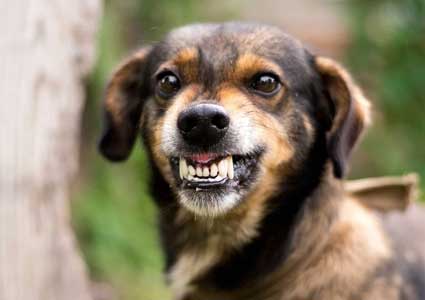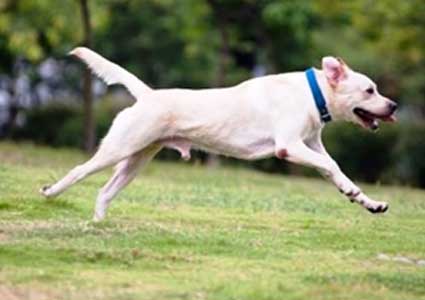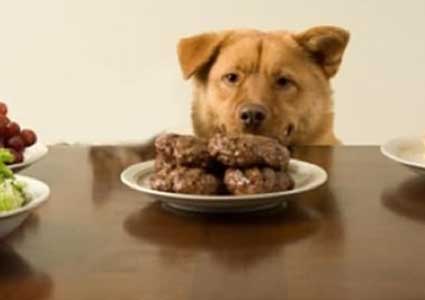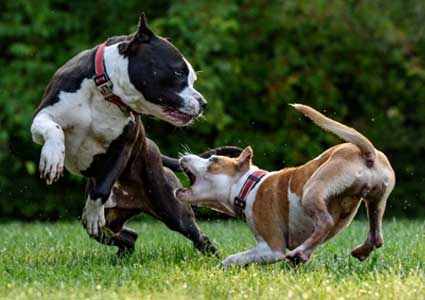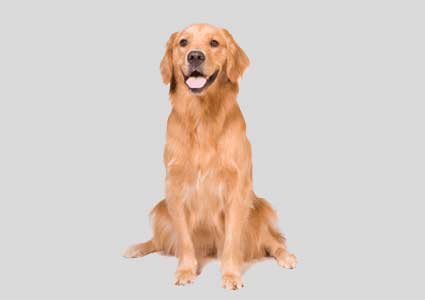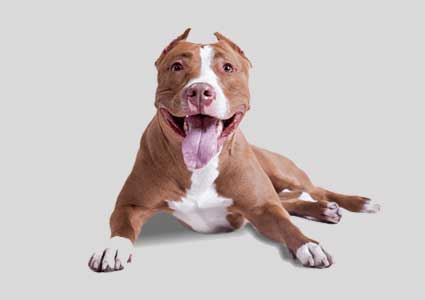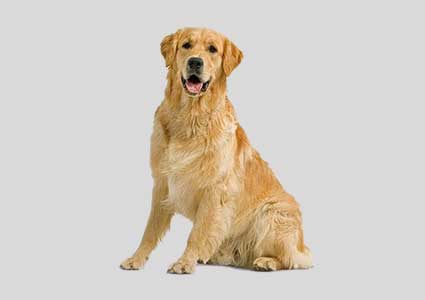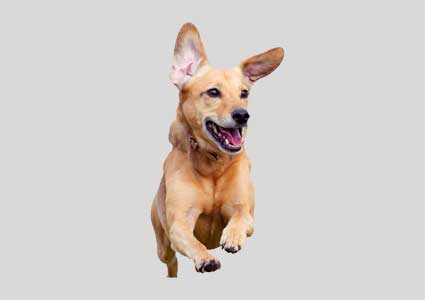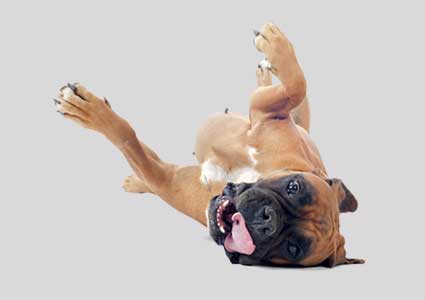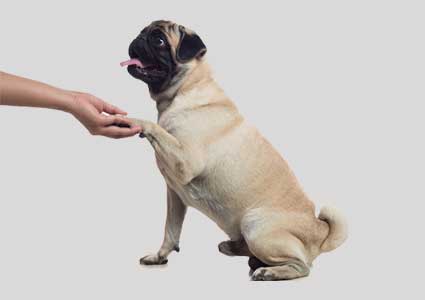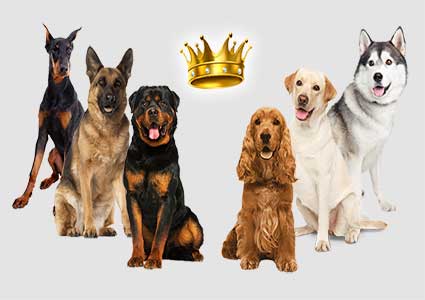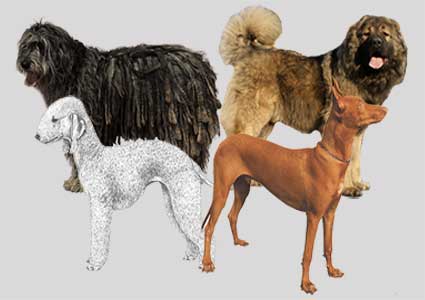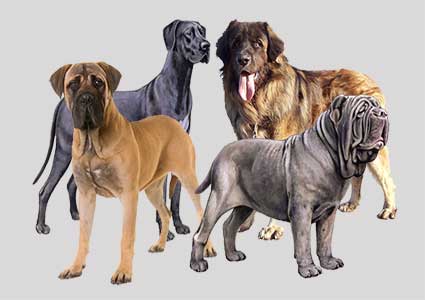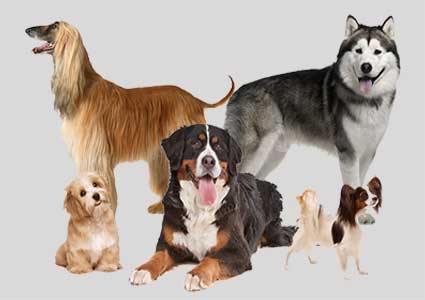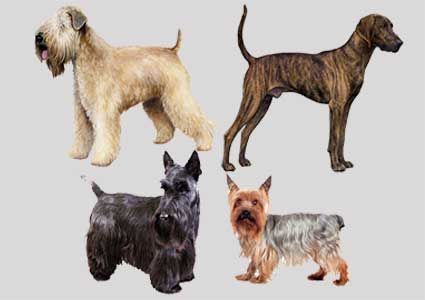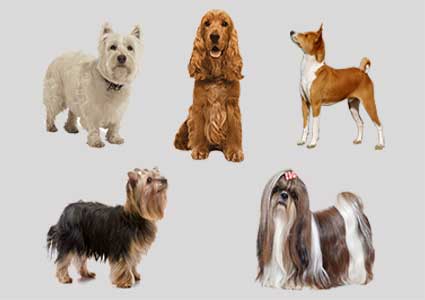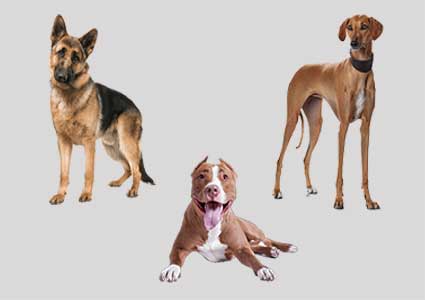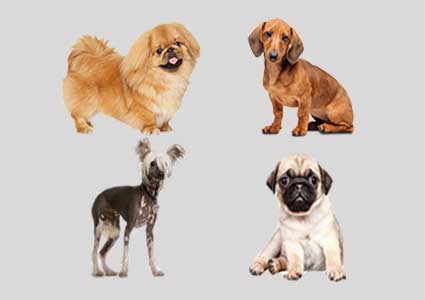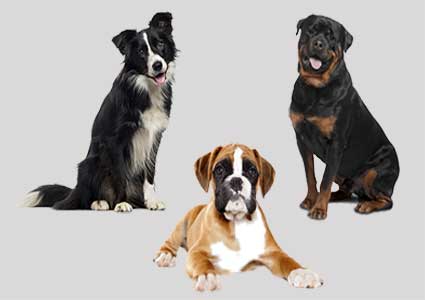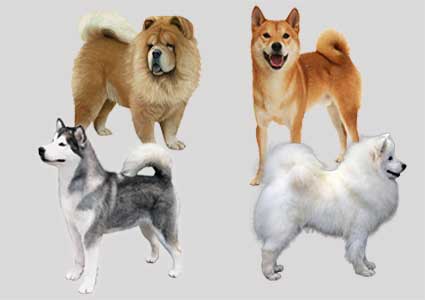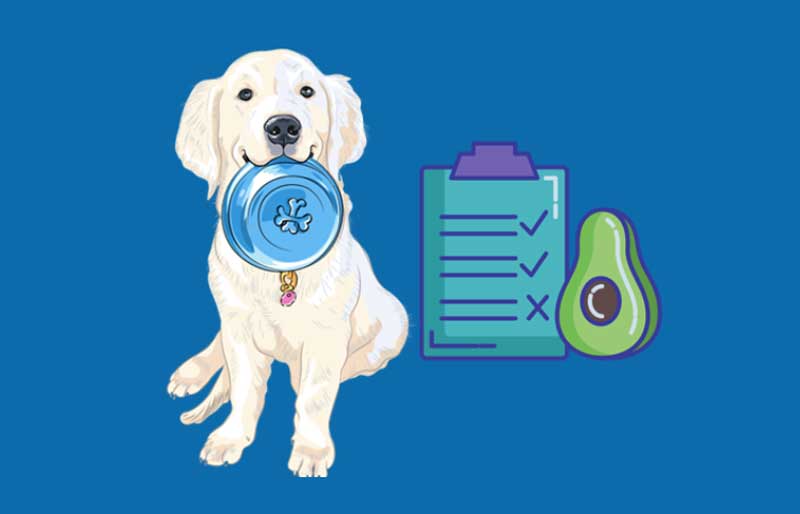
This is the most comprehensive guide about foods dogs can and can’t eat safely.
In this guide we’ll show you:
- Harmful foods that hurt your dog
- Foods you can feed occasionally
- Healthy foods to feed regularly
- Lots more
Let’s get started.
Doggy Food Guide Contents

24 Harmful Foods For Dogs
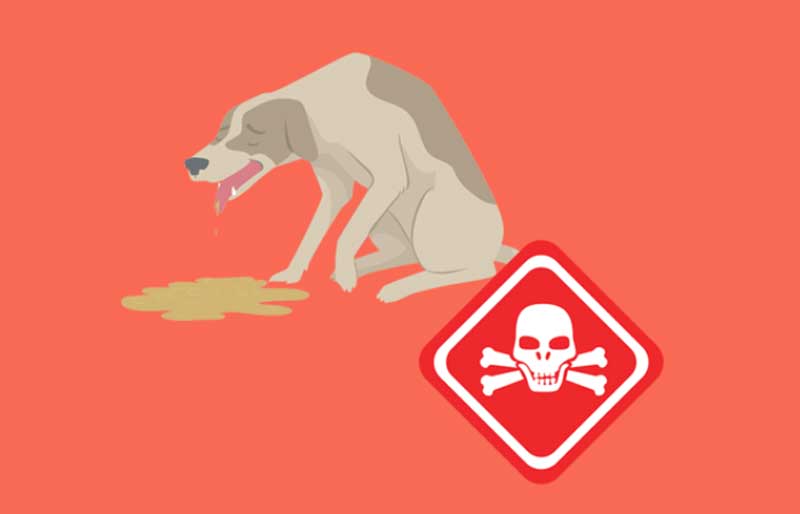
In this chapter, we are going to show you the most harmful foods for dogs.
Eating these in large amounts can cause adverse reactions in your canine like:
- vomiting & diarrhea
- increased heart rate
- seizures & tremors
- paralysis
- even death
A single bite of any of these foods may not cause much damage to your pooch. But…
It is always best to keep your puppy away from these foods.
If your pooch accidentally takes a sip from your cup, he may be fine. But if he gets his paws on tea-bags, coffee beans, or coffee grounds, then he can ingest a lot of it very quickly. This high caffeine dose could be lethal for him.
Caffeine poisoning can cause increased heart rate, tremors, vomiting, and seizures. If your pup displays any of these symptoms, take him to the vet immediately.
For smaller dogs, consuming even one chocolate bar can have deadly consequences. Symptoms like vomiting, tremors, and seizures can appear within 6 hours of consumption.
If your dog eats even a small bit of chocolate, it is best to call the vet quickly.
Pickles are essentially cucumbers soaked in a brine made of salt-water, spices, and vinegar. Some pickles even have chili pepper added.
The high sodium content of pickles makes it harmful for your pup. It can cause stomach upset, along with diarrhea and vomiting.
Extra ingredients like garlic, pepper, onions, or other spices in the pickle make it even more lethal for your canine.
If your dog accidentally ate one pickle, it may not cause much damage.
But if he is regularly eating pickles, it puts him at risk of high blood pressure, stroke, heart attack, and other deadly disorders.
Keep pickles away from your furry friend.
If your canine has alcohol poisoning, he will display symptoms like slowed breathing, tremors, panting, restlessness, and eventually organ failure and death.
Never give your pup alcohol in any form, and if you suspect he has consumed it, then call the vet quickly.
There are many comical videos online showing how dogs react to lemons. But there is nothing funny about what lemon does to your pup’s stomach.
Lemons contain concentrated citric acid and psoralen compounds that are toxic for your dog. Your pooch will have a strong reaction and get an upset stomach if he eats lemons or drinks its juice in large quantities.
The breed, age, or gender of your dog doesn’t matter. It is equally lethal to all dogs.
And there is no medically proven safe-amount that any dog can eat (even larger breeds).
So if your puppy ate even a single grape or raisin, it is better to call the vet immediately.
Common symptoms of grape poisoning in dogs include diarrhea, dehydration, loss of appetite, vomiting, and abdominal pain.
These symptoms appear within a few hours of ingestion. Acute kidney failure happens within 48 hours of grape consumption.
Frequently feeding your pup sugary products like caramel, cake, donuts, or marshmallows can lead to health issues like diabetes, cavities, obesity, hyperactivity, and diarrhea.
Don’t feed your canine sugar regularly in any form. Eating one bite of a cake or donut once in a while may not hurt him, but you shouldn’t use it as a regular treat.
The pit contains a chemical called persin that is highly toxic for dogs.
Persin can leak out from the pit into the fruit’s pulp and make it hazardous for your puppy.
Also, if the pit is swallowed by your pup, it can cause a blockage in her intestines and become fatal.
Unripe avocadoes are even more toxic because their persin content is significantly higher.
The stem and skin of avocadoes are also difficult for your pup to digest and can cause gastric issues.
If your dog eats some of the pulp, it may not be cause for concern.
But if she has swallowed the whole pit, then it is best to call the vet quickly.
Guacamole is made by mixing avocadoes with other ingredients like onions, which are even more poisonous for dogs.
So it is best never to feed your dog guacamole.
They contain a toxic compound called thiosulphate. Thiosulphate kills red blood cells in dogs, which leads to a dangerous condition known as hemolytic anemia.
Red blood cells transport oxygen in your pup’s body. When there aren’t enough red cells in his body, your dog may show symptoms like fatigue, decreased appetite, pale gums, fainting, and enlargement of the heart.
If left untreated, this can eventually lead to heart failure and death.
Every part of the onion, along with its juice and powder is toxic to all dogs.
If your dog snatched up a piece of onion from your kitchen table, it might not be immediately dangerous.
But if he starts displaying any of the above symptoms, it is best to contact your vet fast.
It contains compounds known as disulfides and thiosulphates that damage and burst your dog’s red blood cells.
Both cooked and raw garlic is dangerous. Any product containing garlic in any form is always poisonous to dogs.
Even a single clove of garlic can be deadly to your pooch, especially if he is of a smaller breed.
The first symptom of garlic poisoning is stomach upset caused by inflammation of the intestines. This can lead to diarrhea, vomiting, and intense stomach aches.
As your dog’s red cells start dying, his blood won’t be able to carry enough oxygen to his organs. This will lead to fatigue, lethargy, jaundice, and eventually, anemia.
If you believe your pet has consumed garlic in any form, it is best to call your vet immediately.
Firstly, it can be a choking hazard if your dog swallows it whole. Secondly, it takes a long time for your pup’s stomach to digest it and so it can cause intestinal blockage.
If your dog eats moldy walnuts, it can cause seizures and other serious problems.
A single walnut swallowed accidentally may not be cause for panic. But if your pooch eats several of them, then watch him closely for stomach problems and call the vet.
Every year after Thanksgiving and Christmas, many pet owners are forced to take their canines to the vet. Because they feed their pooch lot of leftovers from buttery dishes, which ultimately makes their dog sick.
Keep the butter away from your pup.
Eating a single nut may not harm him, but eating large quantities can cause dangerous health complications.
Moldy or salted pecans are even more harmful.
Pecan in shells can get lodged in your dog’s throat or intestines.
These nuts also have very high fat-content, which can damage your pup’s pancreas.
Keep your pup away from pecans and all pecan based products.
The fermentation caused by yeast produces ethanol, which is highly toxic for dogs.
If your canine accidentally ate raw bread dough, it is best to call the vet quickly.
Macadamia nuts, in any form, raw, roasted, are baked into other products, are all lethal for your canine. Chocolate covered macadamia nuts are even worse. It can cause hind-leg paralysis, vomiting, and tremors in your puppy.
Call the vet quickly if he eats even one.
Opiates present in poppy seeds severely impact your pup’s nervous system. Opioid poisoning can lead to decreased heart rate, hyperactivity, breathing difficulty, and seizures.
Baked goods can sometimes contain poppy seeds, so read their label carefully before feeding any to your pooch.
It contains a neurotoxin called Myristicin that harms your dog’s nervous system and causes pain, tremors, and convulsions.
Call your vet immediately if your dog accidentally eats even a little bit of nutmeg.
Garlic damages your dog’s red blood cells, and citric acid from the lemon juice will upset his stomach.
Avoid feeding any salty or acidic foods to your pup.
These products can contain artificial sweeteners like xylitol, which are highly poisonous for your pup.
Additionally, licorice contains a compound called glycyrrhizin that can spike your pup’s blood pressure when eaten in large amounts.
Products with high sugar content are always harmful to your furry friend and can cause weight gain, heart disease, and pancreatitis.
All of these are harmful to your pup. Cheetos have zero nutritional benefits for dogs. And their high fat and salt content makes them dangerous for your furry friend.
Don’t feed your canine Cheetos.
Your pup’s digestive system is not equipped to handle spicy foods. If you feed him too many spicy foods, it can cause vomiting and diarrhea.
Avoid feeding your canine any spicy peppers or jalapenos.
The pomegranate peel is tough and, if swallowed, can cause intestinal blockage. Pomegranate seeds called arils are difficult for your pooch to digest.
Pomegranate seeds contain concentrated antioxidants, which puts an intense strain on your canine’s digestive system if consumed in large amounts.
Overall, the benefits are too little and risk too high. So it is safer to keep your dog away from pomegranates.
Grapefruits are rich in vitamin C, which is good for humans, but it is not that beneficial for your furry friend. Plus, dogs usually don’t like the bitter taste of this fruit.
It is better not to feed him any grapefruit because of the associated risks.
Jello is powdered gelatin mixed with sugar. It also contains artificial flavoring and sweeteners, which makes it even more dangerous for your pooch.
32 Foods To Feed Cautiously
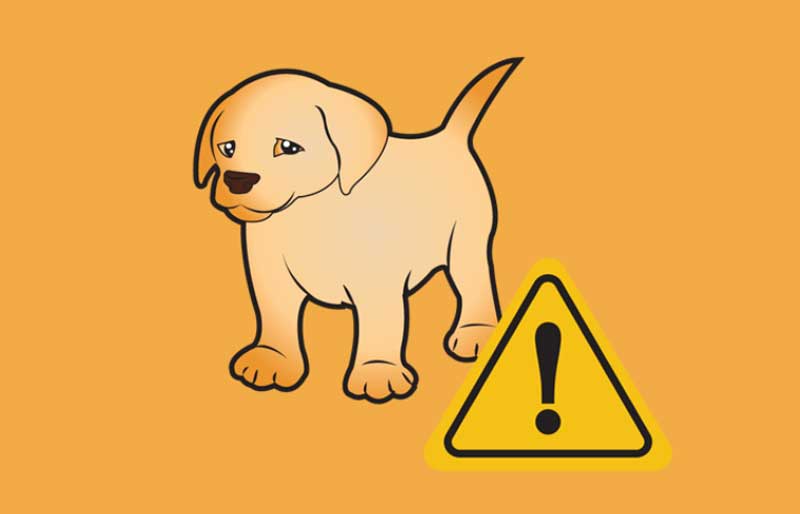
Now it’s time to look at foods that you can feed your pup, but with caution.
If you handle and process these foods in proper ways before you feed, they can be beneficial for your dog.
Failing to feed these foods correctly, can cause your canine to get an upset stomach or something far, far worse.
Let’s get started.
Feeding whole celery sticks can cause some dogs to choke on it when they try to swallow it whole.
Celery is low in calories and rich in manganese, vitamins, and fiber. It is fine to feed your pup celery as a crunchy treat on rare occasions in limited quantity.
Corn contains fiber, carbohydrates, protein, linoleic acid, B vitamins, and many essential minerals.
If the corn is covered with butter, salt, and other seasonings, it can become harmful for your puppy.
Unpopped or uncooked corn can cause stomach upset in your dog and so it is best to avoid it.
Corn on the cob is even more dangerous because your puppy may swallow the whole cob. And this can lead to intestinal blockage, which can be fatal.
Overeating corn can cause kernels to get stuck in your dog’s teeth and cause tooth decay and also lead to obesity.
Although corn is nutritious, it doesn’t have many health benefits for dogs.
Also, there is a chance that some uncooked kernels may accidentally be consumed by your dog and cause tummy trouble.
If you must give him corn, then only feed him plain cooked corn or air-popped popcorn as a small treat once in a while.
But the pit or seed contains a cyanide-based toxin known as amygdalin.
If your dog tries to swallow the whole fruit, the pit can get stuck in her throat or block her intestines.
If your dog swallows the whole fruit, and she shows symptoms like vomiting, panting, or tummy pain, then take her to the vet.
The skin of the fruit can be contaminated with pesticides, so wash them thoroughly.
Peaches and nectarines have significant sugar-content, so they should only be fed in small portions to your puppy.
Feeding too much or too frequently can cause cavities, weight gain, upset stomach, or diabetes.
Wash the fruit, remove the pit, slice into small pieces, and feed it to your canine as an occasional treat.
Eating one or two cherries may not cause a problem. If your pup eats too many, it can cause gastrointestinal upset and cyanide poisoning.
Swallowing whole cherries with their pit can also lead to intestinal obstruction.
Plus, even if the pit is not eaten, the high sugar content of cherries can still cause upset your pooch’s stomach.
Some varieties like maraschino cherries have added sugar content and other chemicals that make them even more dangerous to dogs.
Overall, the risk is too high, and the benefits are too little.
If you must give your furry friend cherries, only use unprocessed ones and remove the pit and stem before feeding it.
It is probably better to avoid feeding him any at all.
It takes a large dose of cinnamon to do any real damage to your canine. If your pooch consumes lots of cinnamon based products, it can cause liver disease, diarrhea, vomiting, and abnormal heart rate.
Having an occasional sniff of a cinnamon stick is not going to harm him, but inhaling powdered cinnamon can cause choking, breathing problems, or cough.
It is best to keep your cinnamon locked up and away from your furry friend.
Cooked pork bones can splinter when chewed by your dog and damage his mouth, throat, and intestines.
Raw pork and its bones contain several harmful parasites that can infect your dog and cause severe fever and pain.
Processed forms of pork like sausage, ham, bacon, and salami all contain very high levels of salt.
They usually also contain other ingredients like garlic and onion, which make them even more toxic for dogs.
Eating a small piece may not do much damage. But eating these meats frequently can be dangerous because they can cause a life-threatening bloating of the stomach.
Condiments like barbeque sauce or mustard also should be avoided entirely.
Pork contains a kind of fat, which is hard for dogs to digest. If pork is fed too frequently or in large quantities, it can cause inflammation in your pooch’s pancreas.
Dogs’ bodies are usually not well equipped to digest lactose from yogurt, once they become adults.
When feeding yogurt to an adult dog, take care to give a small quantity, and observe his reaction.
If he displays symptoms like vomiting, diarrhea, or gas, your pooch may be lactose intolerant.
Pick greek yogurt as this contains the lowest amount of lactose.
Only feed your canine plain yogurt without any sugar or artificial sweeteners.
Artificial sweeteners like Xylitol are toxic to dogs, and sugar can upset his stomach.
You can feed plain, greek yogurt (in moderation) as an occasional treat to your furry friend.
Eating a single plum pit won’t kill him, but it is better to be cautious.
Prunes are just dried plums with the pit usually removed.
Plums are rich in iron, antioxidants, and vitamins, so it could be used as an occasional healthy treat.
Eating a whole plum could choke him or block his intestines, so be careful.
Plums and prunes are loaded with sugar and fiber, which may impact your pup’s digestive system if consumed in larger portions.
Serve only pitless, sliced prunes to your pooch in small quantities.
High sodium intake can lead to dehydration and high blood pressure in your dog.
Garlic, onion, and other ingredients added during the manufacture of hot dogs are all toxic for dogs.
Eating a single hot dog may only cause stomach ache, diarrhea, or vomiting. But if your pooch eats too many, it can become dangerous.
Avoid feeding hot dogs to your canine as much as possible.
Dogs with wheat allergies will show symptoms like itching, vomiting, constant ear infections, and diarrhea.
Wheat-based products contain a lot of carbohydrates, which can be too much for your pup.
Your canine’s diet needs to be rich in protein and fat. High carbohydrate consumption can have adverse health effects like diabetes, weight gain, heart disease, and arthritis.
Plus, the sauce used with pasta, noodles, and spaghetti usually contain onion and garlic, which are poisonous for dogs. Keep the sauce away from your pooch.
While pasta and similar wheat-based items aren’t toxic to your dog, they aren’t healthy either.
It can cause inflammation of the intestines, leading to nausea, vomiting, and stomach pains when eaten in large amounts.
However, mustard greens (the leafy part of the plant), is safe for dogs to eat. It is rich in vitamins, fiber, and minerals.
Feed him only one or two as a rare treat.
Never give him salted or seasoned cashews.
If your dog is overweight or has kidney problems, then don’t feed him cashews.
If your dog is lactose intolerant, feeding ice cream can cause vomiting, constipation, or bloating.
The high sugar content in ice cream can cause weight gain and diabetes in the long term.
Sugar-free ice-creams may contain the sweetener xylitol, which is toxic for dogs.
Chocolate flavored ice-cream is even more toxic for dogs because of the theobromine in chocolate. Other flavors dangerous for your canine include coffee, grape, raisin, and nuts.
An occasional lick of your vanilla ice cream may not harm your dog. But ice-cream is not a healthy treat for your puppy.
Almonds are really high in fat. Some dogs are not able to digest it well and get indigestion after eating it. There is also the risk your pup may choke on them.
Eating one or two may be fine, but gobbling a lot can make him sick quickly.
Flour, milk, and butter extracted from almonds are all similarly high in fat and can upset your canine’s tummy.
Kale contains compounds known as oxalates that can cause kidney stones in dogs if they eat a lot of it.
Kale is rich in fiber, vitamin A, vitamin K, and many vital minerals. These can improve your canine’s muscles, immunity, vision, and digestion.
Raw kale can upset your dog’s stomach. Only feed him cooked kale.
Pizza has almost no nutritional benefit for your dog. Even the meat toppings on it are heavily-processed and too high in salt.
There may be additional ingredients in the pizza crust like salted cheese, garlic powder, or processed wheat, which are all harmful to your canine in various ways.
If your pup snatched up a pizza slice slyly, he probably would be fine. But never deliberately feed him the pizza.
Too much salt can lead to dehydration and, over time, cause kidney problems.
These fried foods can also contain other ingredients like garlic, onion, sugar, pepper, and vegetable oils. All of these are harmful to your puppy.
Consuming too many fried foods can damage your pooch’s pancreas.
Accidentally eating one or two chips or fries may not harm your pooch. But it is better never to feed these intentionally.
Cooked bones can easily splinter when chewed and cause injuries to your dog’s mouth, windpipe, and intestines.
Raw bones can be eaten by your pooch, but you need to be watchful, so he doesn’t chew and break the bone. Only give your pup bones that are so large that he won’t be able to swallow it.
Even if your canine can digest milk products, whipped cream is loaded with saturated fats and sugar that are bad for him.
Having a single lick of whipped cream may not harm him (unless it has chocolate). However, it is still not healthy to let your dog eat whipped cream regularly.
Soybeans and edamame can be eaten by your canine safely in moderation. But concentrated soy milk and tofu are not recommended.
Long-term feeding of soy-based products like tofu can cause damage to his kidneys, make him gassy, and cause bloating. Some dogs can also be allergic to soy.
It is best to avoid feeding him tofu or other soy-milk based products regularly.
The shells and hulls of these seeds can cause stomach ache and intestinal damage if swallowed by your dog.
Sunflower seeds contain a lot of oil, so feeding a lot can damage your canine’s pancreas. Serve your pooch only small amounts of no-shell sunflower seeds infrequently.
You should never give your dog a whole apricot. Plus, swallowing the whole fruit may also cause choking or block his intestines.
Use apricots only as an occasional sweet treat.
They can be used as a rare filler snack. If you want to feed your pup cereal, then bran flakes are more nutritious.
Avoid chocolate, nutty, or sugary cheerios as these are harmful to your pooch.
All forms of cheese like swiss, parmesan, cheddar, and cottage are high in fat and calories, so overfeeding can cause weight gain and pancreatitis in your canine.
Cheese does contain many essential fatty acids, vitamins, and protein. Trainers often use cheese as a motivational treat, and vets use it sometimes to feed concealed medication pills.
Feed cheese only in tiny portions to your pup.
Raw, smoked, or canned oysters are harmful to your dog.
When cooking oysters, avoid using oil or butter and don’t add any salt, spices, or seasonings.
In rare cases, oysters can be contaminated with a poisonous type of algae that may cause diarrhea. So feed oysters with caution.
Don’t feed your pooch any salty or spicy crackers as they will upset his tummy.
If you feed him too many crackers, it can lead to obesity and diabetes.
Keep a strict limit on how many crackers you feed your pup.
All the different colored bell peppers (green, yellow & red) are rich in vitamins and antioxidants. They improve your pup’s immunity, skin, and vision.
Steam the pepper before feeding because the tough outer skin may be hard for your pooch to digest. Don’t add any oil or seasonings.
But make sure you don’t give him any spicy peppers like chilies as those can upset his stomach.
Any cereal with raisins, chocolate, a lot of sugar or artificial sweeteners should be avoided entirely. They are toxic to your dog.
Bran flakes and oat bran cereal are quite healthy for your pup.
If you do decide to feed it to your pup, then start with a tiny piece of jackfruit flesh.
Limit his intake to only a few small pieces of jackfruit pulp once a week.
White or brown bread made of wheat is usually safe if your pup doesn’t have a wheat allergy. Only feed it as an occasional treat.
Garlic bread or bread containing raisins are highly toxic for your canine and can seriously hurt his body.
It is better to avoid pieces of bread containing nuts and seeds as they have too much fat, and some nuts are toxic for your canine.
Baked goods containing artificial sweeteners like Xylitol are also highly toxic for your furry friend.
If he cannot digest the protein lactase in milk, then feeding milk or milk-based products can cause diarrhea, vomiting, and gas.
Milk is also high in fat. Too much fat can damage your canine’s pancreas and make him obese. Even if your pooch is not lactose intolerant, only feed milk in small quantities as a rare treat.
Feeding your pup too much tuna can lead to several health complications.
If your dog steals a piece of tuna off your plate, it is okay. But don’t intentionally feed him tuna as a treat.
Feed These 53 Foods In Moderation
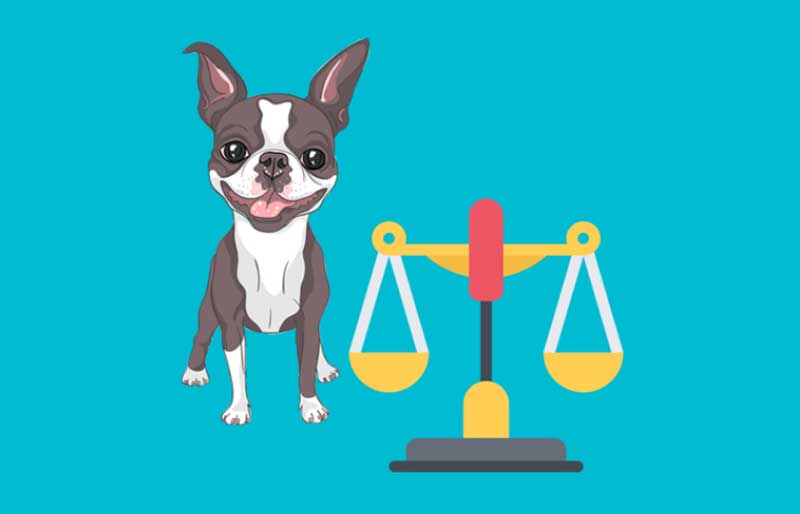
In this chapter, we will look at some foods which are healthy for your pup if you feed them in limited quantities.
Feeding too much, or too often can lead to unwanted reactions.
Most of your dog’s daily nutrition should come from kibble.
Extra treats like these should only be a small part of her diet.
Apples also help to heal the age-related wear and tear in your pup’s body and even prevent cancer to some extent.
Only feed your canine, the fleshy part of apples. The core, stem, and seeds contain poisonous cyanide. And the core can also become a choking hazard.
It is best to feed only organically grown apples to your dog. Many apples sold in supermarkets contain pesticides and other chemicals that may be harmful to your dog.
Apples have a lot of sugar, so only feed them in moderation to your pet. Otherwise, it can upset her tummy and also lead to obesity in the long run.
Can Dogs Eat Applesauce?
Unlike natural apples, applesauce can be loaded with extra sugar and other artificial flavorings and chemicals.
Sugar-free varieties can contain Xylitol, which is highly poisonous to dogs. So read the label carefully.
If you feed applesauce to your pet, then pick an organic brand. And check that it contains no added sugars, no artificial flavors, and no chemical preservatives.
The rinds (outer skin) can cause intestinal blockage, and the seeds can cause stomach upset in your pup.
Watermelon is rich in potassium, fiber, vitamin A, vitamin B6, and vitamin C. It contains 92% water and is low in sodium. Plus, it has an antioxidant known as lycopene that can help prevent cancer.
If your pooch swallows a few watermelon seeds, it may be fine, but eating too many can cause diarrhea.
If your dog accidentally swallows a piece of the watermelon rind, then make sure to watch for symptoms of intestinal blockage like vomiting or abdominal pain and call the vet quickly.
Watermelon has a lot of sugar, feeding it to your dog too frequently can lead to weight gain or tummy problems.
The flesh of the fruit can be safely eaten.
But just because the flesh can be eaten doesn’t necessarily mean it should be eaten.
These citrus fruits have a lot of sugar and citric acid, which can irritate your puppy’s digestive system.
Many other foods offer these same nutrients without the associated risk.
It is best to avoid citrus fruits altogether or feed them only on rare occasions.
If you feed your dog oranges, tangerines or clementines, then offer only one or two pieces (after cleaning the pith and seeds) as a treat.
Can dogs drink orange juice?
No. Most store-bought orange juices have a lot of sugar and preservatives added to them.
Eating these berries will slow down your dog’s aging-process, boost his immunity, and improve his skin.
Snacking on too many berries can upset your canine’s tummy, so keep the portion size small.
Canned berries or berry-flavored products are usually loaded with sugar, preservatives, and artificial sweeteners. These are toxic for your canine, so don’t feed them.
Fresh ripe tomatoes are rich in fiber, lycopene, folate, and vitamin A & C. These nutrients improve your dog’s skin, muscles, digestion, cognition, and bone health.
However, unripe green tomatoes, along with their stems, leaves, and vines, contain a compound known as solanine, which is toxic for dogs.
In small quantities, it may not do much damage, but if your dog eats a lot of them, it can cause stomach upset and other severe reactions.
Symptoms of tomato poisoning include drowsiness, diarrhea, vomiting, tremors, and abnormal heart rate. If you notice any of these symptoms after your dog eats tomatoes, then call your vet immediately.
And if you have a tomato garden, keep your dog out of it!
Can Dogs Eat Tomato Ketchup?
Tomato ketchup found in supermarkets and grocery stores have many ingredients like garlic, salt, sugar, cinnamon, and onions.
These ingredients are harmful to your dog.
Some ketchup brands contain xanthan gum added as a thickening agent. It can cause bloating and tummy aches in dogs.
Xylitol, used as a sweetener in some sugar-free kinds of ketchup, is highly poisonous for dogs.
If you want to share ketchup with your furry friend, be sure the read the label of ingredients very carefully.
Fish meat is rich in omega-3 fatty acids and proteins.
Cook the fish thoroughly without using oil, butter, salt, or any seasonings. You must remove the tiny and brittle fish bones as they can get stuck in your dog’s throat.
Raw fish is loaded with dangerous bacteria like listeria and salmonella. Never feed raw fish to your pup.
Canned fishes are usually loaded with too much oil and salt, so they are not suitable for your dog.
Fish species with longer life-spans like swordfish and tuna can contain heavy metals like mercury. Don’t feed those to your dog.
It contains various anti-inflammatory nutrients that improve the health of your dog’s skin, joints, brain, and heart.
Only feed your canine cooked, boneless tilapia in small portions as an occasional treat.
And don’t add any salt, butter or seasonings.
Don’t feed him sardines that are packed in oil, or covered with salt and seasonings.
Sardines contain coenzyme Q10 that boosts your dog’s brain functions and improves bone health.
These nutrients will boost the health of your dog’s skin, joints, immune system, and brain.
Salmon is commonly used as an ingredient in many best-selling dog foods.
Raw salmon contains harmful parasites, so you must always cook it thoroughly before feeding your pup.
Salmon has tiny brittle bones that can choke in your canine’s intestines or throat. Serve your dog only cooked, boneless salmon fillets without any oil, pepper, salt, or seasonings.
Restrict your dog’s salmon intake to a medium-sized portion only once a week.
But their peel can be difficult for dogs to digest. The mango pit is toxic because it contains cyanide.
If your dog swallows the pit, it can choke in his throat or block his intestines and prove deadly.
So peel the mango, remove the pit and slice the soft flesh into small pieces before feeding it to your pup.
Ripe mangoes are really sweet, so your dog may love it.
However, eating too many sweet fruits can cause tooth decay and weight gain in your furry friend.
Feed mangoes only once in a while to your pup as a special treat.
They contain lipoproteins that prevent heart disease and omega-3 fatty acids that give your pup a glossy coat.
Raw shrimp contains several nasty bacteria and viruses which can cause deadly diseases in your pooch.
Feed only cooked shrimp to your canine.
Canned or packaged shrimp may contain seasonings, salt, oil, and other preservatives, which could be harmful to your dog. Read the ingredients on the label before buying.
Feed your pup fresh, plain cooked shrimp without any added ingredients.
In rare cases, some dogs may be allergic to shellfish. So give your pup a small piece first and check how he reacts.
Shrimps are low in fat and calories but high in cholesterol, so you should only feed them to your pup occasionally.
All these nutrients are vital in your pup’s diet.
However, the seeds, stems, and leaves contain a small amount of toxic cyanide.
Don’t give a whole pear to your dog as it can cause a blockage in his throat or intestine.
It is better to cut the fruit into small pieces, remove the seeds and stem, and then feed your dog.
As pears are full of natural sugar, it is essential to limit it to less than ten percent of your canine’s diet.
Canned pears contain added sugar and other preservatives that are harmful to dogs.
Only feed fresh, ripe pears to your furry friend.
Eating it raw can cause gas, diarrhea, or vomiting in your pooch.
It is better to trim the hard ends of the asparagus and cook it before feeding it to your dog.
Steam or boil the asparagus. Don’t use any oil, butter, or seasonings when cooking, as this can make your canine sick.
Feeding whole sticks of asparagus can be a choking hazard, so cut it into small sections before feeding.
Asparagus can cause your puppy’s urine to stink (just like it does in humans). So if your puppy is not housebroken yet, better hold off the asparagus.
Asparagus is rich in fiber, vitamin B6, vitamin A, potassium, and thiamin. These vital nutrients can improve your dog’s health in many ways.
Only feed asparagus to your puppy in once or twice a week, in small quantities. Or else the excess fiber could upset his stomach.
The high sugar content in honey can cause obesity in your dog if you feed him too much. It should not be served if your dog is overweight or diabetic.
Honey is known to boost energy, soothe ulcers, heal wounds, prevent allergies, and reduce inflammation.
Many brands of honey found in supermarkets have added sweeteners that decrease its health benefits. Pick only natural honey with no additives.
Natural raw honey sometimes contains few bacterial spores. Puppies below one year of age have an immature digestive system that can’t handle these, and they may fall ill.
Avoid feeding honey to young puppies or to dogs with compromised immune systems.
However, spinach also contains oxalic acid, which can damage your pup’s kidneys if consumed in large quantities.
Raw spinach is difficult for your canine to digest. But boiling can destroy the nutrients in it.
Steamed, chopped spinach is the most suitable way to feed your pooch.
Don’t add any salt, garlic, onion, oil, or spices because these can harm your dog.
Long term consumption of spinach has been known to cause kidney damage and muscle inflammation in a few rare cases.
So it is probably best not to make spinach a regular treat.
These nutrients strengthen your pup’s immune system, muscle system, and digestive system.
It is a low-calorie, healthy, and crunchy treat for your dog.
Eating large amounts of broccoli and cauliflower can cause gas in dogs.
Don’t use frozen or canned ones from supermarkets as they may contain added salt or preservatives which are harmful to your dog.
You can feed cooked, chopped, cauliflower/broccoli without any spices (or oil) to your canine in small quantities.
Peas contain high amounts of a compound known as purine, which can worsen kidney issues in dogs with weak kidneys.
Eating a lot of peas can also upset your pooch’s stomach.
Don’t feed canned peas or salted peas to your pup because their high sodium content is harmful to your dog.
Be careful of the pea pods as your dog can choke on them.
You can feed your pup unseasoned, fresh (or thawed) green peas in small quantities once in a while.
Raw oats are hard for your pooch to digest, and mixing it in milk could upset his stomach.
Oats are a rich source of fiber, carbohydrates, and vitamins. It can improve your pup’s digestive health and make his fur healthy and shiny.
Feeding too many oats can cause vomiting and diarrhea, so don’t go overboard.
Any flavoring or additives like raisins, chocolate, butter, salt, or cinnamon can be harmful to your dog.
Only feed him plain, cooked oatmeal that is at room temperature.
This makes them an excellent snack for your dog as long as you take a few precautions.
Slice the zucchini into small bite-sized pieces, so he doesn’t choke on it.
Avoid any additives like garlic, oils, seasonings, and spices. Only give plain raw or cooked zucchini to your pup.
Limit the portion size to a few chunks of zucchini to prevent stomach upset.
Olives contain healthy monounsaturated fats that decrease cholesterol and manage blood pressure.
But the pits of olives contain compounds that are toxic for your dog. Pits can also cause choking and intestinal problems.
Always remove the olive pits before feeding them to your dog.
Canned, pickled or stuffed olives contain lots of sodium and other additional ingredients that are harmful to your dog.
Feed only plain, washed, unsalted, organic olives to your pup.
Too many olives can give your pooch stomach pain, so serve it only in small amounts.
They are loaded with lots of vitamins, folate, manganese, potassium, antioxidants, and dietary fiber.
But feeding too many Brussel sprouts to your canine can give him gas and diarrhea, so use moderation.
Raw Brussel sprouts are difficult for your pip to digest. Boil or steam them before feeding.
Steaming Brussel sprouts will retain most of their nutrients. Don’t add any salt, oil, or other seasonings.
Cabbages contain a compound called thiocyanate, which can damage your pup’s thyroid gland if fed in large quantities for long periods. Cooking deactivates this compound.
Limit cabbage intake to less than 10% of your pooch’s diet.
Its skin is rough and hard for your pup to digest. Plus, swallowing a whole kiwi can cause an obstruction in his throat or intestines.
If you feed your canine a kiwi, then remove its skin and slice it into small pieces.
Serve only one or two slices and don’t make it a regular treat.
Turkey is full of protein, minerals, and vitamins. It is used in several dog foods.
Turkey bones can splinter and get stuck in your pup’s throat, so remove the bones.
Raw turkey can contain harmful parasites, which can make your dog very sick. Only feed him cooked meat.
Seasonings, spices, and oils are mostly toxic for dogs. Especially take care to never feed him turkey stuffing during Thanksgiving.
The stuffing may contain onion, garlic, butter, and other spices that can cause various health issues in your furry friend.
However, beets are also rich in oxalates, which can harm dogs with kidney and bladder problems when fed in huge quantities. Only feed your pup beets in small amounts.
Canned or pickled beets can contain salt and other harmful seasonings, so avoid them.
While there is no harm in feeding beets to your pooch, it doesn’t really have many health benefits for him.
Other vegetables like carrots are more nutritious and make tastier treats for your canine.
Ginger has anti-inflammatory properties that can relieve joint pain from arthritis. It also heals nausea, bloat, and gas in dogs.
Several medical studies have also established the cancer-fighting capability of ginger. It also boosts your canine’s immune system.
It is best to feed your pup ginger in powdered form. Just sprinkle half a teaspoon of it over your pooch’s kibble once every week.
Ginger can thin your dog’s blood and lower blood pressure. In case your dog is anemic, pregnant, diabetic, or has any heart conditions, then consult with your vet before feeding it.
That is why it is included as an ingredient in some dog foods.
Quinoa does contain a compound known as saponin that can irritate your dog’s tummy if he eats a lot of it.
Wash quinoa thoroughly to get rid of this compound and then cook it before feeding your pooch. Don’t add any spices or seasonings.
When fed moderately, quinoa is a healthier alternative to corn, soy, and wheat-based dog foods.
However, some dogs can be allergic to figs. If your pup displays any symptoms like rashes, coughing, or wheezing after eating them, then she may be allergic.
The fiber in figs can help manage your dog’s weight and support her digestive system. The natural sugars in it will boost her energy levels.
Too many figs can cause diarrhea. Feed your canine only one fig once or twice a week.
You can feed it on rare occasions to your pup. Feeding too many or too frequently can upset his digestion and even cause kidney problems.
Take care to chop radishes into small pieces so that your canine doesn’t choke on it.
Green beans are the best for your furry friend. Other types of beans like black, pinto, lima, kidney, garbanzo, soybeans, chickpeas, and lentils are also nutritious. Still, they are a bit lesser in benefit.
However, coffee beans, fava beans, and chili beans are all harmful to your pup.
Overeating beans can give you pup gas and constipation, so moderation is essential.
Cooked beans will be easier for your canine to digest if you cook them at home.
Store-brought, canned, baked beans are high in sugar and spices, which are toxic for your dog.
Avoid readymade baked edamame snacks, as they have oil, salt, and seasonings harmful for dogs.
No-shell edamame is better because the pods could get stuck in your pup’s throat.
Plain, unseasoned edamame, fed in moderate portions, will give your canine healthy fur, strong muscles and prevent weight gain.
But dried wild seaweed found in summer on beaches is extremely dangerous for dogs.
Ground seaweed is used in several pet supplements.
Cut the seaweed into small chunks before feeding because this prevents any chance of intestinal blockage.
Eating dates will boost your pup’s energy level, strengthen his bones, and improve his immunity to diseases.
Remove the pit of dates before feeding it, to prevent any chance of choking or intestinal blockage.
You should only feed him one or two dates occasionally as a rare treat. Too much of it can cause weight gain and tummy aches in your canine.
Toppings like syrup, butter, whipped cream, and nuts should be avoided. Flavored pancakes that contain chocolate or raisins are toxic for your dog.
Eating too many pancakes can cause weight gain and diabetes. Feed only small bits of pancake now and then.
Raw crab is loaded with deadly parasites, so always cook it before feeding. Remove the shell because it will hurt your pup’s mouth and intestines even after it is cooked.
Feed only small portions of cooked, shelled crab meat to your pooch as an occasional snack.
It also contains lots of sodium, which can make it harmful if overeaten. Only feed lobster meat to your canine in tiny portions.
Raw lobster is full of harmful microbes, and the shell can be a choking hazard. Always cook lobster meat thoroughly, and remove all parts of the shell before you feed.
It is a super herb that is low in calories, rich in vitamins, and has anti-bacterial and anti-inflammatory properties.
You can sprinkle a small amount of cilantro over your pup’s food a few times a week.
Peanuts are loaded with fats and can cause obesity and stomach upset when fed too frequently. Peanut butter with artificial flavorings or sweeteners like xylitol can be deadly for your dog, so only feed the plain kind.
Peanuts can be a great source of proteins and vitamins for your pooch when fed in tiny amounts.
But wild mushrooms growing outdoors can be highly deadly for them. Never let your dog eat a wild mushroom, and if he eats one accidentally, then call the vet quickly.
Store-brought mushrooms, when fed in moderation, can prevent heart disease, improve liver function, and help strengthen your dog’s muscles.
They contain large amounts of carbohydrates, which can cause weight gain and digestive trouble when eaten too often.
Sweet potatoes and yams are healthier options. They are rich in vitamins, iron, fiber, and calcium.
Cook, peel and mash them before feeding to your pooch. Don’t feed it raw because they are hard for your dog to digest.
Canned sweet potatoes and yam are loaded with preservatives and seasonings that are harmful to your canine. Only feed your pooch fresh potatoes.
Don’t feed rosemary if your dog regularly gets seizures or is pregnant.
You can sprinkle rosemary in small doses over his kibble a few times every week.
Don’t serve it fried or raw, as these are harmful to your canine.
Never give your pup a whole chestnut as he can choke on it. Remove the shell, mash it into tiny bits, and then serve.
Don’t serve your pooch salted or processed chestnuts.
Many dog treats have sesame seeds added in them for their nutty taste.
Feed sesame seeds (or products containing them) only in small portions to your pup. Their high-fat content can give your pup diarrhea and other gastric troubles if overfed.
Its nutrients can heal wounds, prevent arthritis, boost the immune system, and improve skin and fur quality in your dog.
Coconut shells are a choking hazard for your dog, so remove them before serving.
Too much coconut can upset your pup’s stomach and cause weight gain, so limit his intake.
It is rich in antioxidants, minerals, vitamins, fiber, and proteins. Okra boosts your dog’s immune system and makes his bones, muscles, and nerves healthy.
You can give it to your canine raw or cooked, but don’t fry it or add any seasonings.
Don’t feed any raw or fried plantains as they are harmful to your dog. Steam or boil plantains and slice them into small pieces before you serve.
Too much plantain can upset your pooch’s stomach, so restrict it as a rare treat.
But it is not recommended for dogs that are pregnant or have kidney problems because it can trigger muscle contractions or bleeding in them.
Spring parsley is toxic for dogs, so only serve curly parsley to your pup.
Periodically feeding small pieces of guava will keep his bowel movements regular and improve his organ health.
You can also use this fruit as a treat during training sessions.
It is rich in essential minerals and vitamins that support your dog’s skin and joints.
Remove the core and skin of pineapple before you feed, or else your pup can choke on it.
Canned pineapples have a lot of sugar, and so it must be avoided.
It is rich in vitamin C and other vital nutrients that boost your dog’s resistance to diseases.
Feeding the skin can upset his stomach. Always remove the peel before you serve dragon fruit to your pup.
Feed only the flesh of this vegetable to your dog. The leaves, stem, skin, and seeds contain the toxic compound rotenone.
Jicama flesh contains a prebiotic known as inulin, which helps your pup’s digestion. Plus, it has vitamins that boost his immunity.
Cooking will make jicama easier for your pooch to digest.
You can feed your pup small pieces of cooked jicama as an occasional treat.
They are low in calories and high in vitamins and minerals that support his immunity, digestion, and muscles.
Feed your pup raw artichokes, sliced into bite-size pieces without any added seasonings.
15 Healthy Foods For Dogs
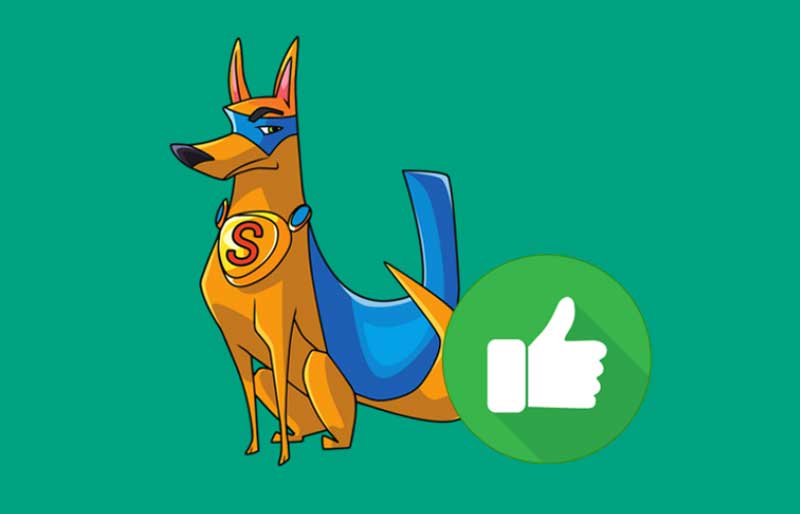
Now its time to look at the best healthy foods for your dog.
You can and should feed these foods to your pooch regularly.
This will improve his overall health and make him one happy puppy.
Just keep the quantity of these healthy treats less than 10% of his daily diet.
Beta-carotene is excellent for your dog’s fur and eyes, while fiber is good for his tummy.
You can feed your pup both raw and cooked carrots.
Your dog may try to swallow a whole carrot (or a large piece) quickly, and get it stuck in his throat.
So always chop carrots into small bite-sized pieces before you feed it.
Carrots are full of sugar, so feeding too many can cause weight gain or even diabetes.
Limit your dog’s carrot consumption to less than 10 percent of his daily food intake.
A lot of dog foods have eggs as an ingredient because of their immense benefits to a dog’s health.
Eggs are rich in protein, iron, and several vitamins.
Boiled eggs are the best kind to feed your furry friend.
You can even feed him scrambled eggs as long as you don’t add any butter, seasoning, spices, or other ingredients.
Frying eggs can make them harmful based on what kind of oil is used.
Feeding raw eggs to your dog is a controversial topic. Some vets argue it is a healthy option. But others claim it can lead to salmonella poisoning or biotin deficiency.
The safest option is to feed your dog one or two boiled eggs a few times every week.
Can Dogs Eat Eggshells?
Eggshells can be a good source of calcium and phosphorus for your dog. They will help strengthen your pooch’s teeth and bones.
Ground the shells to a powder in a grinder before feeding it to him. This will prevent the shells from scratching the inside of his mouth.
They are rich in fiber, potassium, magnesium, vitamins B6, and vitamin C.
Overeating bananas can give your dog constipation, and the excess sugar can also cause obesity and diabetes in the long term.
Banana peels are difficult for dogs to digest, so remove the skin before giving it to your pup.
Feed peeled bananas to your dog in small quantities as an occasional treat.
Cucumbers contain nutrients that strengthen your dog’s bones and joints, as well as lower his risk for heart disease and arthritis. They are especially beneficial for dogs who need to lose weight.
Cut cucumbers into tiny slices before feeding your pup. This will prevent him from choking on any large pieces.
Eating too many cucumbers in one go can upset your pup’s stomach.
It should be less than 10% of his daily meals.
Both cantaloupe and honeydew melon are full of water, fiber, potassium, antioxidants, and vitamins.
Vitamin A present in these fruits will improve your pup’s eyesight. Plus, the antioxidants will reduce the risk of cancer and heal cellular damage.
Don’t feed these fruits if your dog is diabetic because they have high sugar content.
Feeding these fruits too much can also cause constipation due to their high fiber content.
The rinds (outer skin) and seeds can be a choking hazard if swallowed, so it is best to remove them first.
You can feed your pooch the fleshy part of cantaloupes and melons as an occasional treat once a week.
Ensure that there is no dressing on the lettuce because many of the spices used for dressings are harmful to your pooch.
Lettuce may also be covered in harmful chemical fertilizers and pesticides, so wash it thoroughly before feeding your pup.
All forms of lettuce contain vitamins A, C, and K, as well as a lot of water.
Feeding a lot of it is not much beneficial for your pooch. Plus, too much of lettuce could give your pooch an upset tummy.
Feed your puppy raw or cooked lettuce only in moderation.
You can feed both raw and cooked pumpkin to your dog. Even the seeds are safe to eat.
Pumpkins are a healthy, low-calorie snack for your canine when fed moderately. It is a perfect treat for dogs who could benefit from losing some weight.
Feeding too many pumpkins can cause diarrhea or constipation, so limit the serving size.
Canned pumpkins may contain cinnamon, sugar, nutmeg, or other spices that are toxic for your furry friend, so read the label carefully.
It will boost the health of your pup’s heart, bones, immune system, and digestive system.
Papaya contains lots of natural sugar, so only feed a small amount, especially if your dog is diabetic.
Seeds and peel of papaya are harmful to your canine, so remove them before serving.
Overfeeding papaya can lead to weight gain and constipation, so limit your dog’s intake to a few slices every week.
It contains vitamins, potassium, and fiber that will improve your pup’s immunity, fur, and muscles.
Raw butternut squash is too hard for your pooch to chew and digest.
You must cook it before feeding your canine. Then peel it, remove the seeds, cut it into small slices, and serve.
Rice is especially beneficial if your pup has an upset tummy.
Brown rice is more healthy than white rice because it has more fiber and nutrients. Make sure to thoroughly cook it and feed only small amounts to your canine.
Avoid feeding rice to your dog if he is diabetic or overweight.
Raw chicken meat could be contaminated by bacteria like salmonella, so avoid serving it raw to your canine.
Make sure to remove the bones before you serve. Cooked chicken bones can splinter in your pup’s mouth and hurt him badly.
Don’t add any butter, salt, spices, or seasonings when you serve chicken to your pup as these are harmful to him.
You can feed your canine plain, cooked chicken meat regularly.
It can soothe your pooch’s tummy and mind. Sauerkraut will also restore the balance of good bacteria in your pup’s gut.
Only feed homemade sauerkraut, because store-bought ones contain too much salt and condiments that are not good for your dog.
Feeding too much sauerkraut can make your canine gassy, so limit the portions.
It contains a powerful compound known as curcumin that has antioxidant, anti-microbial, and anti-inflammatory properties.
Turmeric can help heal arthritic joints, fight liver disease, prevent cancer, and slow down aging.
You can sprinkle about half a teaspoon of turmeric powder on your dog’s kibble daily.
Chia seeds will boost the health of your pooch’s heart, brain, muscles, joints, and bones.
You should sprinkle a teaspoonful of chia seeds over your pup’s kibble frequently.
Don’t add any spices, seasonings, salt, sauces or oil to the steak as these are all harmful to your pup.
Cut the steak into bite-size portions and remove any bones or excess fat, before feeding your pooch.
Raw meat could contain deadly bacteria like E. coli, so only feed him cooked beef.
Feeding cooked, grass-fed beef periodically will make your dog’s fur, muscles, and joints healthy.


